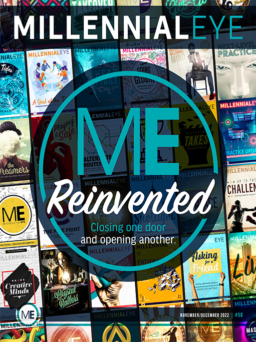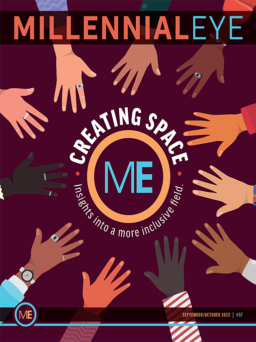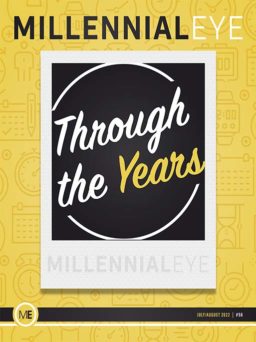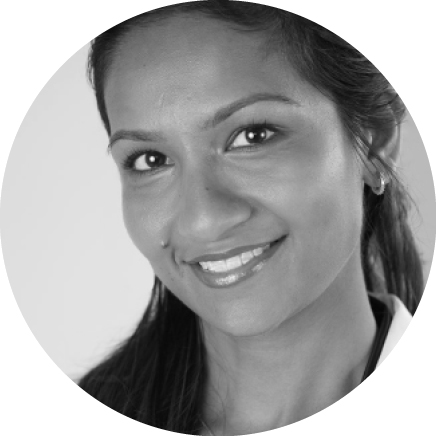
Himani Goyal, MD
I started my ophthalmology residency at SUNY Downstate the same year that Wayne Scott, MD, was hired to be the full-time attending at the Kings County Hospital Eye Clinic. We worked long 12-hour clinic days, and Dr. Scott was there with us for all of it. He came early in the morning for sign-out, he stayed late for us to finish clinic, and he answered his phone and came in after hours for emergencies even when he was not on call. He showed us—the residents—a level of respect as if we were his colleagues from the beginning. This relationship grew with us every year in residency and into the operating room. He even came in on Saturdays to see postops with us sometimes. To this day, I strive to be as supportive of my residents as he was of us. He has taught me to be humble, respectful, and to learn from every experience. I hope to portray this in my every interaction.
Himani Goyal, MD, is a Clinical Assistant Professor, Department of Ophthalmology, at SUNY Downstate Medical Center. Dr. Goyal may be reached at himani.goyal.md@gmail.com.

Matthew Hammond, MD, FACS
I remember so many things from training that define the way I practice. I was lucky to have trained with so many great physicians. There is one experience, however, that will always stand out. I was on my pediatric rotation, and the attending was very demanding. I practiced each step of the case—suturing hot dogs and learning the exact “dance” of passing instruments—and prepared for when I should have the instruments and when and what my attending would ask for. I learned it so well that my wife told me I was repeating the steps in my sleep. I will always be grateful for the lesson I learned: Know your stuff. There was no way to bluff my way through the steps of that case; I had to know it cold. I still feel the same way about surgery and everything to do with the precision of eyes. Know your stuff.
Matthew Hammond, MD, FACS, practices at Hammond Eye Institute in Logan, Utah. Dr. Hammond may be reached at Gr8vsn@yahoo.com.

Helene Lam, MD
I became an ophthalmologist because of the gift of eyesight that we can bestow on our patients. In training, as I imagined future practice, I thought my primary and possibly only goal was to learn and refine the skills necessary to produce the best outcomes for my patients. Other tasks that did not require such practice and concentration seemed possibly in need of delegation. However, I was struck by a seemingly tedious but religious habit of some of my most talented surgical mentors: calling patients postoperatively, asking how they were doing and if they had any questions, and leaving their contact information with them.
Recently, I received a message from a patient I had in Massachusetts, more than a year after I had moved to California. She had severe ocular graft vs host disease from a leukemia bone marrow transplant and, over the course of 3 years, was slowly losing her battle with her vision and the cancer. I would see her sometimes on a weekly basis, and she would often email or call me for advice, even continuing to contact me after I moved. The message I received was that she had stage 4 metastatic cancer and was on hospice. I debated whether to call and take up her precious time, especially as I could no longer give any advice to help her. But I finally called just to let her know that I was thinking of her. In between raspy breaths and barely audible, she told me that I was one of the best doctors she ever had because she felt that I truly cared about her and listened to her. Her husband told me that my calling—including this last call—meant the world to her.
This experience showed me how a simple practice of doctoring can impact patients. As an ophthalmologist, with a simple phone call, I can closely follow patients I may be concerned about, problem-solve issues with them, and build trust. This contact also reinforces a personal ownership of my surgery in a way that motivates me to be a better surgeon. Finally, I will occasionally be surprised by the lasting impression that caring can leave on patients and on me, even when there is nothing more I can do but listen.
Helene Lam, MD, is an ophthalmologist at the US Department of Veterans Affairs and a Clinical Assistant Professor in the Department of Ophthalmology at Stanford University School of Medicine. Dr. Lam may be reached at helenelam@yahoo.com.

Isaac W. Porter, MD
I remember when we finished rounding on the first day of my internal medicine internship. I had a full list of tasks to complete. This was the first time I could personally sign off on medical decisions, so I started discharging patients, adjusting medications, and writing orders. I quickly learned that I needed to make good choices, be decisive, and move on to the next task. It wasn’t practical or possible to run every detail by my upper level or attending to ensure that I had made the right call. I had just achieved semi-autonomy and had the duty and responsibility to make appropriate medical decisions myself.
As we all know, this continued through residency with an increasing balance between training and independence, and, ultimately, I was prepared to function on my own. Then, in fellowship, I had the chance to supervise residents in the operating room and clinic and help them learn to make their own important decisions. Whenever students or residents ask me what it takes to succeed, I advise them to work hard, never complain, take excellent care of patients, and send the patients home quickly and happy. These same lessons I learned on my first day as a resident continue to help me care for my patients and run my solo practice.
Isaac W. Porter, MD, is a cornea and LASIK surgeon at Lowry Porter Ophthalmology in Raleigh, North Carolina. Dr. Porter may be reached at eyeporter.com or on Twitter @eyePorter.
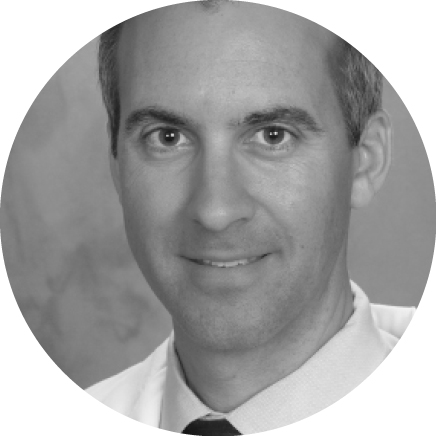
Jared Younger, MD, MPH
It is always fun to ask colleagues, “Why ophtho?” Every answer, detailing the evolution of one’s career, is intriguing. Looking back on my years, I had minimal exposure to medicine; however, in college, I was thinking about going to medical school, and, through a friend, I was able to get a job in a basic neuroscience lab. The research consisted of dissection and antibody analysis of feline eye tissue; I remember staring through the microscope for hours looking at methylene blue stained retinal cells. The intricacy of the “microsurgery” work was startling at first. No way did I see the big picture then or consider ophthalmology for the future.
In medical school, I was set on cardiology, until my third-year schedule had to be changed, and I fell into an ophthalmology rotation … done. I remember seeing an attending take a conjunctival biopsy at the slit lamp to study the effect of drop preservatives. Observing this fast-paced clinic and the variety of procedures being done, I knew that eye surgery was right for me; I just had no idea how many opportunities would be possible. Now, despite the everyday challenges, a happy patient is always a reminder of what an amazing field we have: the rewards of vision care, the rapid advances in technology, and the unlimited possibilities in our “micro” world.
Jared Younger, MD, MPH, is a cornea, cataract, and refractive surgeon at Orange Coast Eye Center in Fountain Valley, California. Dr. Younger may be reached at youngerjared@gmail.com.



